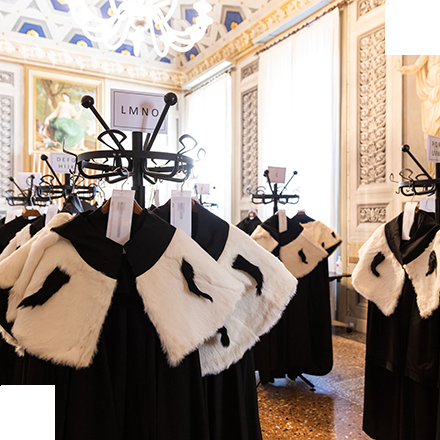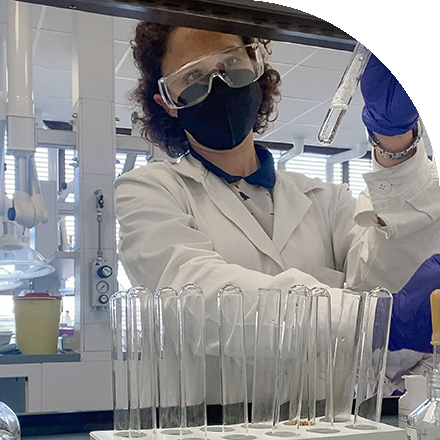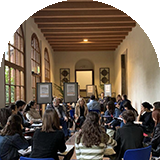Università Cattolica del Sacro Cuore Largo A. Gemelli, 1 - 20123 Milan
Evandro Agazzi
On the occasion of the publication of the book "The Systemic Turn in Human and Natural Sciences. A Rock in the Pond" by Prof. L. Urbani Ulivi, Professor and Alumnus Evandro Agazzi, is back in Largo Gemelli.
Starting from his speech on "The systemic turn in philosophy and science", the short reflection entitled "The sphere of knowledge" was born: to what extent is it possible to explore the unknown? How much can the "volume of knowledge" grow? :
The Sphere of Knowledge
"According to a spontaneous conception of common sense, scientific knowledge is comparable to the exploration of a vast territory that is equivalent to the boundless field of the unknown. In this exploration, science proceeds laboriously, progressing through the accumulation of truths and the elimination of errors: in this way the extent of what it has known increases, although the field of the unknown always remains very vast. However – ideally – this field is finite and it can therefore be imagined that with the passage of time science will be able to cover it in its entirety to the point that there would no longer be areas where the unknown remains unexplored.
This is a fairly simplistic picture. Today, various anti-realist philosophies of science claim to support the precariousness of scientific knowledge, which is always debatable and controversial, and therefore inevitably leaves an undefined area of the unknown that we do not know how and when it can be explored. On the other hand, it is more correct to adhere to a realist conception of scientific knowledge, that is, to accept that science advances by gaining more and more knowledge which, although lacking absolute certainty, is reliable beyond any reasonable doubt and therefore can constitute, so to speak, a "volume" of knowledge that can be preserved and handed down from one generation to the next. while leaving a "frontier" that separates this volume from the unknown. The question that arises is this: "Will the time come when this frontier will cease to exist"? The answer is "no". Not because we should doubt scientific knowledge, but because this knowledge advances indefinitely, at the same time expanding its contact or, if we prefer, the frontier of its contact with the unknown. The image that lends itself well to translating this conception is the one according to which the volume of scientific knowledge available at a certain moment can be represented as the volume of a sphere, while the surface of the sphere constitutes the frontier between the known and the unknown. As the quantity of scientific knowledge increases, the volume of the sphere certainly increases, but so does the surface area of the sphere, that is, the frontier that separates the known from the unknown, and we thus know that the surface of a sphere is proportional not to the mere radius, but to the square of the radius. Thus, paradoxically, the more the content of knowledge increases, the more the frontier with the unknown increases. This is explained quite well by realizing that when a scientific problem is solved, the solution can be absolutely correct without reasonable doubt about it; However, from that solution, new problems arise that need to be addressed and resolved. This is the unknown that has sprouted, so to speak, from the results of knowledge. It is clear that this process has no end, since it repeats itself with each increase of knowledge, which produces a further need for knowledge, and this indefinitely, that is, without being able to imagine that at a certain moment there will be nothing more to discover and nothing unknown to investigate."
The Interview
The alumnus Agostino retraced the years in Largo Gemelli and explained the influence of a Catholic education on his thought. Finally, he defined the role of the "philosopher" today and offered advice to students who have embarked on this path.






